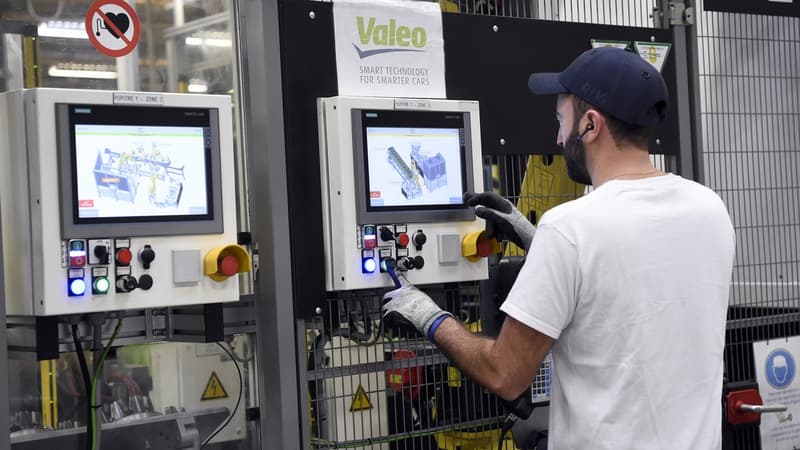Valeo, MA France, Walor, Bosch: automotive equipment makers are increasing sales, closing plants and cutting jobs, subject to increased competition and complicated electrification.
In the Ardennes, Walor was bought last October by the German fund Mutares, which now wants to sell its two sites. The equipment manufacturer Valeo announced in mid-July that it was looking for buyers for two factories and a French research centre, which employs 1,000 employees, before a possible closure.
The giant bodywork presses at MA France, the last major car factory in Seine-Saint-Denis, have also stopped: this supplier (280 employees) to Stellantis and Renault has been put into liquidation for lack of competitiveness. A third of the employees signed an agreement to receive a bonus of 15,000 euros before their departure, partly paid by the main contractor, Stellantis, according to a CGT trade unionist. Dozens more employees are still in place.
At Impériales Wheels, the last aluminium wheel made in France left the Diors (Indre) factory on 18 June, after years of difficulties. 176 employees are in the process of retraining.
“The period we are going through is quite difficult at all levels”
“The period we are going through is quite difficult at all levels,” explains Marc Mortureux of the Automotive Platform (PFA), which represents manufacturers and equipment suppliers. The European automotive market has not fully recovered after the years of the Covid epidemic and the number of cars produced remains low.
“It’s difficult for manufacturers, but they have compensated for this with price increases. For equipment manufacturers it’s more complicated,” says Mortureux.
In addition, the high-speed electrification of the automotive market is hitting sectors such as casting and stamping, which are less used in electric vehicles. The Automotive Platform estimated that 65,000 jobs in the automotive sector would be at risk by 2030, according to a report published in 2021.
A difficult electrical change
“Overall, we are entering this period of increasing numbers of companies in great fragility,” the 2021 report predicts, Mortureux stressed for the PFA. On the other hand, this electrical shift also requires hiring, among equipment manufacturers who have repositioned themselves in the electricity or battery factories.
Other small companies have also managed to diversify into sectors other than the automobile. Those facing the most difficulties are, a priori, “medium and large companies, very oriented towards the automobile and concentrated on the European market,” stressed Mortureux. Manufacturers, for their part, “must invest heavily” in the electric transition and “also play for their survival,” explains Mortureux.
“Large customers make internal efforts and also demand enormous efforts from all their suppliers. Their relationships are sometimes extremely difficult,” stresses the PFA CEO.
These difficulties are not limited to France. In Germany, the German giant ZF (electrification, chassis, safety systems) announced that it wanted to cut up to a quarter of its workforce in the country, i.e. 14,000 jobs, citing “strong competition”. A French subcontractor that makes gearboxes for ZF, the Alsatian Dumarey Powerglide, is suffering a drop in orders and now fears a social security plan.
Source: BFM TV


